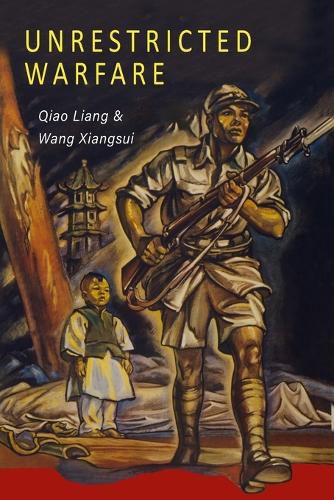Readings Newsletter
Become a Readings Member to make your shopping experience even easier.
Sign in or sign up for free!
You’re not far away from qualifying for FREE standard shipping within Australia
You’ve qualified for FREE standard shipping within Australia
The cart is loading…






This title is printed to order. This book may have been self-published. If so, we cannot guarantee the quality of the content. In the main most books will have gone through the editing process however some may not. We therefore suggest that you be aware of this before ordering this book. If in doubt check either the author or publisher’s details as we are unable to accept any returns unless they are faulty. Please contact us if you have any questions.
2020 Facsimile of the 1999 Edition. Unrestricted Warfare is a book on military strategy written in 1999 by two colonels in the People’s Liberation Army. Its primary concern is how a nation such as the People’s Republic of China can defeat a technologically superior opponent (such as the United States) through a variety of strategies. Rather than focusing on direct military confrontation, this book instead examines a variety of other means. Such means include using International Law (see Lawfare) and a variety of economic means to place one’s opponent in a weakened position and circumvent the need for direct military action.
Of the various strategies discussed perhaps the most relevant is that of attacking networks. Networks are increasingly important in not only data exchange but also transportation, financial institutions, and communication. Attacks that disable networks can easily hamstring large areas of life that are dependent on them for coordination. One example of network warfare would be shutting down a network that supplies power. If there is a significant failure in the power grid caused by the attack, massive power outages could result, crippling industry, defense, medicine, and all other areas of life.
The English translation of the book was made available by the Foreign Broadcast Information Service in 1999. Errors in translations are the sole responsibility of the Foreign Broadcast Information Service and not of Albatross Publishing.
$9.00 standard shipping within Australia
FREE standard shipping within Australia for orders over $100.00
Express & International shipping calculated at checkout
This title is printed to order. This book may have been self-published. If so, we cannot guarantee the quality of the content. In the main most books will have gone through the editing process however some may not. We therefore suggest that you be aware of this before ordering this book. If in doubt check either the author or publisher’s details as we are unable to accept any returns unless they are faulty. Please contact us if you have any questions.
2020 Facsimile of the 1999 Edition. Unrestricted Warfare is a book on military strategy written in 1999 by two colonels in the People’s Liberation Army. Its primary concern is how a nation such as the People’s Republic of China can defeat a technologically superior opponent (such as the United States) through a variety of strategies. Rather than focusing on direct military confrontation, this book instead examines a variety of other means. Such means include using International Law (see Lawfare) and a variety of economic means to place one’s opponent in a weakened position and circumvent the need for direct military action.
Of the various strategies discussed perhaps the most relevant is that of attacking networks. Networks are increasingly important in not only data exchange but also transportation, financial institutions, and communication. Attacks that disable networks can easily hamstring large areas of life that are dependent on them for coordination. One example of network warfare would be shutting down a network that supplies power. If there is a significant failure in the power grid caused by the attack, massive power outages could result, crippling industry, defense, medicine, and all other areas of life.
The English translation of the book was made available by the Foreign Broadcast Information Service in 1999. Errors in translations are the sole responsibility of the Foreign Broadcast Information Service and not of Albatross Publishing.